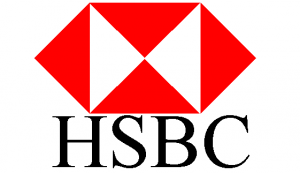
HSBC profits plunged last year on huge writedowns and restructuring charges, the banking titan said Tuesday, warning of uncertainty over Brexit and Donald Trump’s economic policies.
The London-headquartered bank with a focus on Asia said net profit tumbled to $1.29 billion (1.22 billion euros) in 2016, down 90 percent on a year earlier.
Profit before tax stood at $7.1 billion, down 62 percent after HSBC slashed the value of its private banking activity in Europe by $3.2 billion over an acquisition made in 1999.
HSBC was hit also by restructuring costs of $3.1 billion following its announcement in 2015 to cut 50,000 jobs and exit non-core markets. The bank also took a charge of $1.8 billion following a change to its debt value.
“Investors’ reactions to HSBC’s full year results only intensified as the day went on, Britain’s biggest bank seeing its losses expand following news of a 62 percent slide in annual profit,” said Connor Campbell, analyst at Spreadex trading group.
Shares in the bank tumbled to trade down 6.7 percent, topping the loser’s board around midday on London’s benchmark FTSE 100 index.
HSBC had closed down 5.0 percent in Hong Kong.
In the regulatory statement, HSBC chairman Douglas Flint said the political sea-changes that had rocked the world in 2016 had contributed to “volatile financial market conditions”.
Looking ahead, he highlighted “the threat of populism impacting policy choices in upcoming European elections, possible protectionist measures from the new US administration impacting global trade… (and) uncertainties facing the UK and the EU as they enter Brexit negotiations”.
Flint said the bank was looking for worldwide agreement on financial rules to avoid possible “fragmentation in the global regulatory architecture as the new US administration reconsiders its participation in international regulatory forums”.
Trump wants to dismantle some of the restrictions on banks put in place after the 2008 financial crisis, rules his Republican Party says have hampered Wall Street’s ability to make money.
Observers worry that any such move to loosen controls could leave European and Asian-based banks at a disadvantage compared to their US counterparts.
Reacting to HSBC’s results statement, Dickie Wong, director of research at Kingston Securities, said that in regards to “the (US) interest rate environment and Donald Trump’s policies — no one knows what will happen”.
– ‘Still on track’ –
On the impact of Brexit, Flint reaffirmed earlier reports that “current contingency
planning suggests we may need to relocate some 1,000 roles from London to Paris progressively over the next two years, depending on how negotiations develop”.
Chief executive Stuart Gulliver later told reporters that half the jobs facing a switch across the Channel would be held by French nationals.
The bank also said the process to find a successor to Flint in 2017 “remains on track”.
Like most global banks, HSBC has been struggling to boost profits as it grapples with the uncertainty thrown up by Britain’s looming exit from the EU.
British Prime Minister Theresa May has indicated a willingness to give up access to the European single market as the price for getting control over immigration.
Companies like HSBC that have large operations in London are worried that such a settlement would present them with difficulties accessing the huge market of the EU.
“Despite an underwhelming set of full year results, HSBC is making progress in de-risking and restructuring, and ultimately the bank’s focus on the Far East could be its trump card if the Chinese economy starts to fire on all cylinders,” said Laith Khalaf, senior analyst at stockbrokers Hargreaves Lansdown. afp




